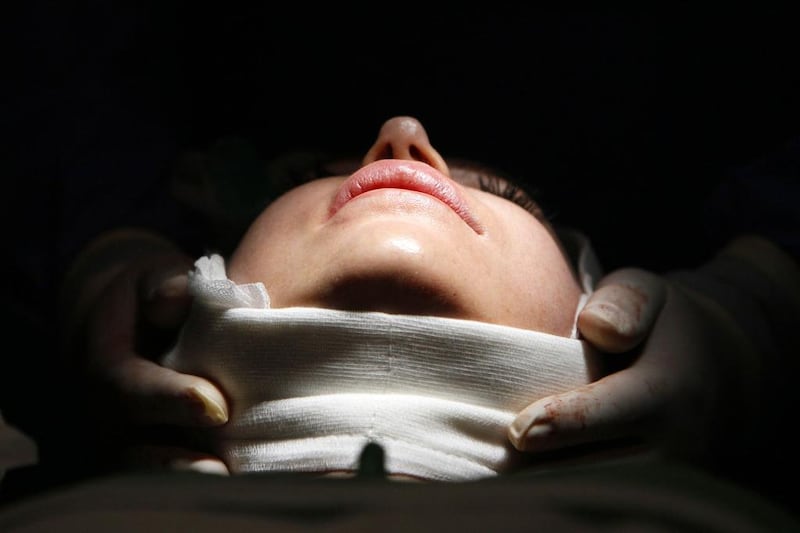Dubai’s plastic surgery boom continues. Men are seeking surgery to remove their “CEO belly”, while girls as young as 13 are requesting plastic surgery. These developments, all recently reported in The National, underscore our growing obsession with physical appearance. Are we set to become a “Beautopia”, a society of artificially enhanced Aphrodites and Adonises? Or, can we break free from our beauty bias and learn to accept our imagined imperfections?
Each term, I give my female psychology students two essays to grade. Both essays are identical other than being attributed to different authors – Hazza or Ahmed. Each essay also contains a photo of its purported author. Hazza is classically handsome, while Ahmed is typically described as ugly.
The students grading handsome Hazza’s essay award it, on average, a B. Meanwhile, poor Ahmed typically gets a C for the exact same work. Once the truth of the situation is made known, the students start to explain away their beauty biases. However, the point is made: physical attractiveness matters and more troublingly it matters in contexts where it really shouldn’t. A nip and a tuck might just shift your college grades in the right direction. It shouldn’t, but it might.
In the criminal justice system, research suggests, attractive defendants are generally more likely to be acquitted, or given lighter sentences, than their less attractive counterparts. One of my students shared her own criminal justice anecdote, telling the class how a police officer, upon seeing her, ripped up the parking ticket he had just placed on her car’s windscreen. He then gallantly declared that he would never give a girl “like her” a ticket. So, a nip and a tuck might spare you a fine, jail-time even. It shouldn’t, but it might.
Perhaps the idea that physically attractive people get a better deal is driving the increased demand for cosmetic surgery? After all, it’s handsome heroes who get to marry beautiful princesses, rescuing them from ugly sisters and even uglier stepmothers. But maybe if our beauty bias wasn’t so obvious and pervasive, we might start to feel more comfortable in our own sagging skins.
But we are biased and consequently many of us are extremely uncomfortable in our own skins. Even if we are OK with our appearance, others might not be. I’ve heard of mothers who encourage young daughters to have cosmetic surgery in the hope of expediting marriage proposals, and friends who misguidedly advocate it as a means of preventing marital infidelity.
And so we seek cosmetic interventions hoping to find satisfaction in our newly acquired appearance. Unfortunately some people find only fresh disappointments and renewed appearance anxieties. If this cycle goes on long enough, psychiatrists might eventually label the condition body dysmorphic disorder.
In BDD, the distress associated with imagined ugliness is best described as massively disproportionate. For example, a modestly attractive young woman, imagining herself to be hideously ugly, might avoid social interaction for fear of humiliation and embarrassment. If forced to interact, she will typically resort to camouflaging her imagined defects – oversized glasses, excessive make-up, baggy clothes. This sounds pretty common to me. Maybe a mild form of body dysmorphic disorder has become the norm.
Around 50 per cent of BDD sufferers pursue cosmetic surgery, and for most (98 per cent) attempts to improve their imagined defects fail. For such people, surgery offers little hope of relieving their appearance anxiety. With the correction of one imagined defect, they quickly become preoccupied with another imagined or exaggerated blemish.
There are plastic surgeons from all over the world flying here to supply the demand. It seems wise to expend equal, if not greater, effort in understanding and addressing the issues that underlie the demand too.
Justin Thomas is an associate professor of psychology at Zayed University and author of Psychological Well-Being in the Gulf States
On Twitter: @DrJustinThomas





